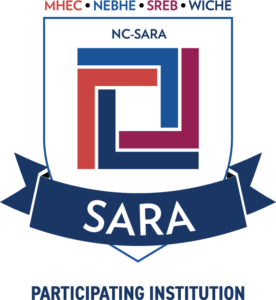This course provides an overview and exploration of the organization of American government, which
includes an overview of the historical significance of the Constitution; the Bill of Rights; Congress; the
Supreme Court; the Presidency; political parties and interest groups. This course is an introduction to
political science.
This course is rooted in sound business ethical practice and its importance. Understanding social
responsibility, this course provides analysis of ethical decision making from a management perspective as
well as an individual perspective.
Business legal structure is the foundation of its operations and much more. This course explores
partnerships, types of legal entities, and the relevance of each type. Students learn the procedures
followed in setting up a corporation. This course also provides the entry-level legal language of business.
This course is a basic review of mathematical and quantitative skills, including terminology, checking
accounts, taxes, payroll, step-by-step approaches. This assists in developing math skills used in personal
and business applications.
This introductory course explores the writing skills to include mechanics, effective writing, organization,
and essays. The course ends with a final paper where students demonstrate their newly acquired writing
skills.
This course focuses on the early development of independent ventures as well as those within established
organizations. Individual and organizational level issues will be addressed. Entrepreneurial thinking will
explore the thought processes that challenge existing norms and pave the way for novel solutions to
problems in any field.
This course is an introduction to the human resources field and its key elements. The course outlines the
roles and functions of members of the human resources department, as well as educating others outside
human resources, in how their roles include human resources-related activities.
This course focuses on the principles of communication to include oral and written language. Students
learn the significance of culture and other factors and how they relate to communication.
This course in the introduction to the business arena. Students learn the fundamentals of organizations and
procedures to become acquainted with management principles, business terminology, types of business
organizations and their control.
This course is designed to introduce biology at an entry level by examining the hierarchy that ranges from
the fundamentals of cell biology to the physiology of organisms, and the interactions among those
organisms in their environment
This course presents the theories and principles of modern psychology. Students learn about the different
branches of psychology and the practical application of psychological tenets to functional behavior.
This course is designed to introduce you to the basic principles of marketing. It focuses on distribution,
financing, marketing information systems, pricing, product/service management, promotions, and selling
using common marketing practices we well as exploration of the industry.
This is a survey course in the theory and application of microeconomics. The course topics focus on
microeconomic issues and problems, such as competition and monopoly, pricing, consumer demand, and
producer supply. The course develops a theoretical framework for microeconomic analysis and applies
this theory to practical domestic and international economic policy problems.
Operations Management is the science and art of ensuring that goods and services are created and
delivered successfully to customers. Students learn about management styles and how they impact
operations. Highlighting key concepts and functions, students learn how to analyze their management
style and implement it into their future management roles.
This course explores human behavior in organizations using psychology and sociology principles. The
content discusses the implications of human behavior for business organizations. Issues pursued in this
course include group dynamics, communications, motivation, leadership, and decision making as well as
organizational design, culture, development, and change. The discipline of Organizational Behavior is
unique in its combined goals of seeking organizational success while advocating employee
empowerment.
This course is designed to introduce students to the basic terminology, concepts, and practices customer
service and sales. Students learn the fundamental of sales and the key elements of customer service.
This course is an introduction to the preparation and analysis of business financial statements. Specific
topics include the accounting model, general purpose financial statements and accounting for assets,
liabilities, and equity.
This course is a continuation of Principles of Business Accounting I and an introduction to the use of
accounting information for management in business decision making. Specific topics include determining
cash flows, international accounting, product costing, budgeting, and other concepts of management
accounting.
This is the introductory course in management. The course is designed to provide students an overview of
the management function and its role in organizations and society.
This course is designed as an introduction to the study of the human communication process with an
emphasis on effective public communication. The course includes intensive practice in public speaking,
reasoning, critical thinking, and critical listening. It is an essential general education course teaching
effective use and understanding of written and spoken forms of communication.
This course is an in-depth analysis of human behavior and relationships. Learners with define human
relations relating it to their future potential career fields as well as apply knowledge to real-life HR case
studies.
Business legal structure is the foundation of its operations and much more. This course explores the
intricacies of the US legal system specific to employment lay. Students learn the key elements to
employment law and how to engage in legal practice within human resource management.
This course is designed to introduce students to the basic principles of employer compensation and
benefits. It focuses on how employers navigate the intricacies of finding, deploying, and managing
compensation and benefits
This course is an introduction to the human resources field and its key elements. The course outlines the
roles and functions of members of the human resources department, as well as educating others outside
human resources, in how their roles include human resources-related activities.
This is a survey course in the theory and application of employer training and development. The course
topics focus on training issues and problems, pricing, learning management, and development theories.
The course develops a theoretical framework for training and development analysis.
Compensation Management is the science and art of ensuring that compensation is relevant, on-time, and
within the legal and ethical practices set forth by regulators. Students learn about compensation
management and how it impacts operations.
This course is a continuation of accounting exploration and quantitative reasoning specific to the human
resources profession. The course provides learners with the skills necessary to make intelligent financial
decisions specific to human resource departments with sample budgets.
This course is a culmination of all Infinity College Human Resources courses. Students will learn compile
their knowledge via a final project and learn about how their potential future careers will shape. Students
learn how to navigate the corporate employment ecosystem.
This course is rooted in sound business and human resource ethical practice and its importance.
Understanding social responsibility, this course provides analysis of ethical decision making from a
management perspective as well as an individual perspective, specific to the Human Resources
This course is the introduction to taxation as it applies to small business and individual taxpayers. Topics
include an overview of the political, economic, and social forces influencing federal income taxation and
the role of taxation in personal decisions.
This course builds upon the foundational knowledge explored in Principles of Tax Accounting I. Topics
covered include federal tax system and formations, organizations, and reorganizations. This course
finishes with business taxation, planning, and research.
Financial Statement and Analysis is the science and art of building and projecting budgeting tools and
cash flow management. Students learn about financial business styles and how they impact operations.
This course is a culmination of all Infinity College Accounting courses. Students will learn compile their
knowledge via a final project and learn about how their potential future careers will shape. Students learn
how to navigate the accounting ecosystem.
This course focuses on the introductory analyses of entrepreneurship defining the subset of business. This
course also focuses on early development of independent ventures as well as those within established
organizations. Entrepreneurial thinking will explore the thought processes that challenge existing norms
and pave the way for novel solutions to problems in any field.
This course explores businesses, their structure, and how they behave in our free market system. Human
behavior in organizations using psychology and sociology principles is also explored. The content
discusses the implications business behavior as well as human behavior. Issues pursued in this course
include group dynamics, communications, motivation, leadership, and decision making as well as
organizational design, culture, development, and change.
This course is a survey of business ownership focusing on the structures, leadership styles, and nuances of
building and operating businesses. The culminating project is a business plan with a presentation.
This course is a culmination of all Infinity College Entrepreneurship courses. Students will learn compile
their knowledge via a final project and learn about how their potential future careers will shape. Students
learn how to navigate the entrepreneurship ecosystem.
This course is an introduction to marketing and fitting it into business and professional spaces. Students
will explore the various types of marketing as well as learn entry-level skills essential to navigate a
marketing education.
Understanding marketing language and communication is the essential element of its operations and
much more. This course explores the intricacies of the marketing and the language used in the profession.
Students learn the key elements to of marketing as well.
This course is a culmination of all Infinity College Marketing courses. Students will learn compile their
knowledge via a final project and learn about how their potential future careers will shape. Students learn
how to navigate the corporate marketing ecosystem.
This is a survey course in the theory and application of consumer behavior as it relates to US marketing.
The course topics focus on consumer behavior, consumer issues, pricing, and development relationships.
The course develops a theoretical framework for consumerism.
Professional Selling is the science and art of ensuring that both the consumer and the seller are
benefitting. In this course, students learn the art of communication and the importance of listening to
make a sale.
This course is an in-depth analysis of human behavior and relationships and how they relate to marketing.
Learners with synthesize marketing research and communications research to define and explore the
importance of communication specific to the marketing profession.

